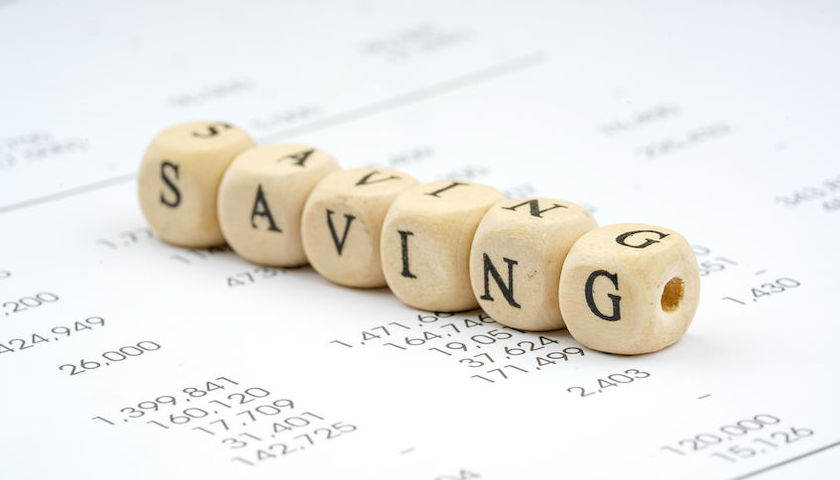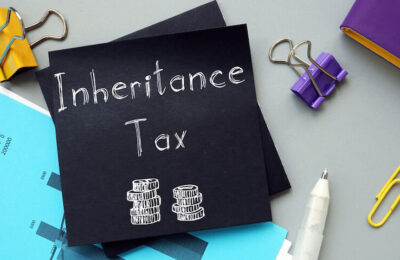Interest rates have been rising rapidly over the last year and a half. Back in November 2022, the Bank of England base rate was at a low of 0.1%. Since then it has shot up, reaching 5.25% in August 2023 – the highest it has been since September 2008. The rate dropped for the first time in August 2024 and again in November but at a very slow pace. Why is it that interest rates always seem to fall much more slowly than they rise?!
On the face of it, this should be good news for savers: higher interest rates mean higher returns. However, there’s one major problem – thousands of people are finding they have to pay savings tax for the first time.
How many people are paying savings tax?
According to a report by This is Money, 1.7 million people paid tax on their savings last year. This is an 83% increase from 972,000 savers in the 2021/22 tax year. In the year to April 2023, the average tax bill for savers was in the region of £2,000. It could rise to as much as £2,500 in the current financial year. Another report suggests the savings tax will hit up to six million savers during the next five years.
How does the levy work?
Currently, people in the UK have a tax-free allowance for savings. Basic rate taxpayers can receive up to £1,000 in interest without paying tax. Higher rate taxpayers have a smaller personal savings allowance of £500.
Some accounts now offer 5% interest on savings. At this level, a basic rate taxpayer can save up to £20,000 without paying interest. A higher rate taxpayer can put aside £10,000 before the savings tax bites.
It’s easy to see why more people will get hit by the tax. When the personal savings allowance was set in 2016, the highest paying savings accounts offered only 1.45% interest. This meant a basic rate taxpayer could save almost £70,000 without paying tax.
I have exceeded my savings allowance. Do I need to file a tax return?
If you earn under £10,000 from saving and investments, you don’t need to complete a tax return. HMRC can update your tax code automatically and take the tax from your salary or pension.
However, if you already complete a Self-assessment Tax Return (for example, if you are self-employed), you need to use it to tell HMRC about any interest on savings.
Can I avoid tax on my savings?
If you are likely to pay savings tax, there are some strategies you can use to legitimately reduce your bill.
Firstly, you can pay up to £20,000 per year into an ISA. You wont pay tax on the interest, although rates tend to be slightly lower than other savings accounts. It is possible to get a higher return with a stocks and shares ISA, but there’s also a risk you’ll get a lower or negative return.
Secondly, if you’re a higher rate taxpayer who is married to a lower rate taxpayer, you can give money to your spouse. Putting the savings in their name will allow you to benefit from their higher personal savings allowance.
Thirdly, you can put money into NS&I Premium Bonds. You don’t pay tax on any prize that you win. Prizes range between £25 and £1 million. The current prize rate is 3.3%.
Finally, if you earn less than £17,570 you benefit from a special ‘starting rate’ for savings. This allows you to earn up to £5,000 of interest without paying interest. Every £1 you earn over £12,570 reduces your starting rate by £1, meaning it disappears after you earn £17,570.
Additionally, basic rate taxpayers receive a personal tax free savings allowance of £1000 which is reduced to £500 for higher rate taxpayers.
Summary
As you can see, more people are falling into the savings tax trap. While you can use some strategies to reduce your bill, the options available to you are determined by the amount of interest you earn. If you earn a significant amount of interest, it’s wise to look ahead and take advantage of an inheritance tax planning service. That way you can pass on more of your money and your assets to your loved ones rather than the taxman!
About Karen Jones
Having worked for one of the world’s largest accountancy firms, Karen Jones uses her tax knowledge and skills to help clients obtain substantial reductions to their tax liabilities.
With an expanding portfolio of tax clients, Karen enjoys the variety her work brings her and particularly likes working with new businesses and people. With a growing number of tax clients, she frequently faces a variety of challenges and relishes the experience she gains as she solves them.
Karen likes the THP ethos: “I like the way the team has a professional, but friendly and down-to-earth approach – it creates a productive atmosphere that benefits everyone.”
Karen’s specialist skills:
- Personal Taxation
- Tax Efficient Planning
- Trust Administration












